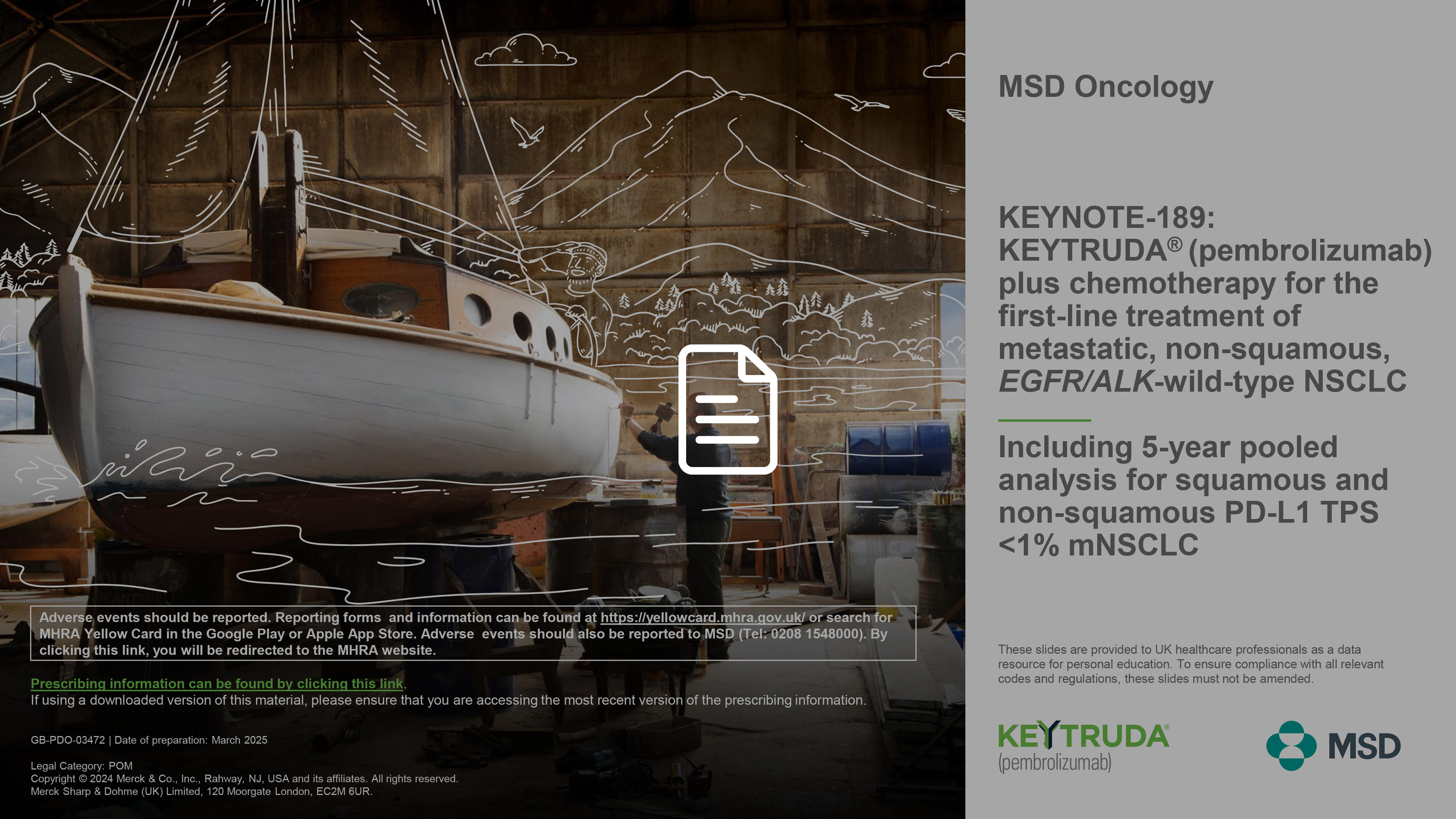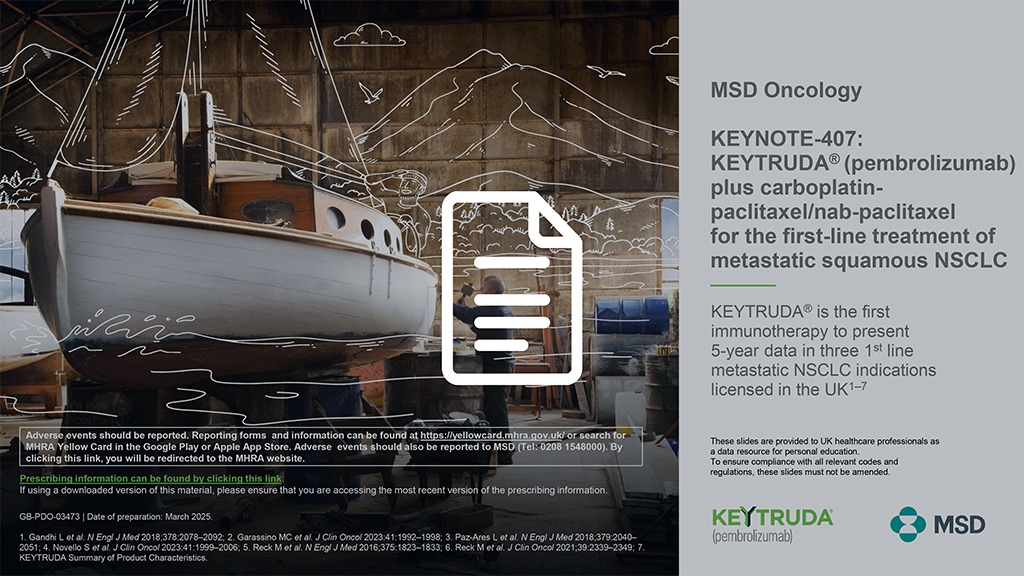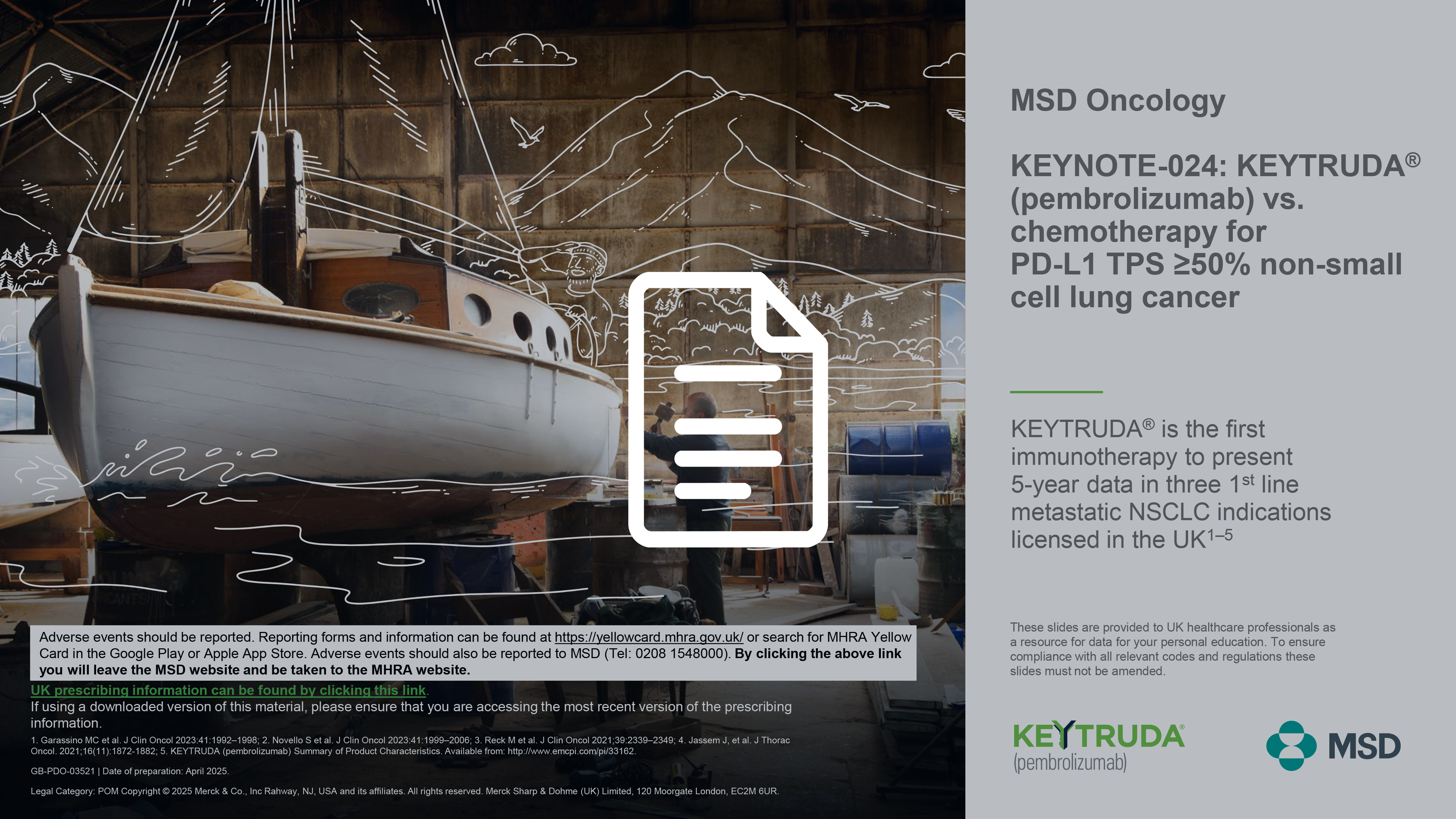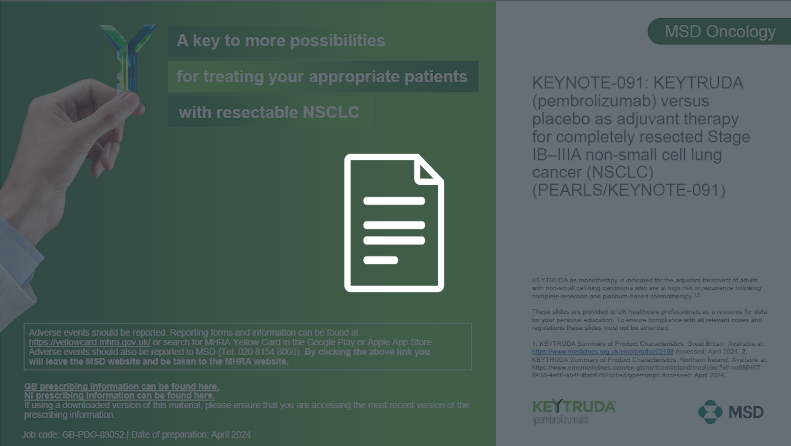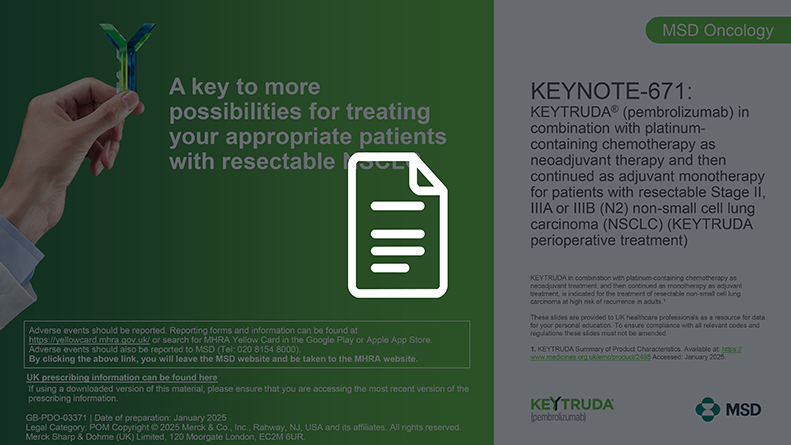KEYTRUDA® (pembrolizumab) in metastatic non-small cell lung cancer (NSCLC) training and resources
Prescribing Information [External link]
KEYTRUDA® plus chemotherapy
KEYTRUDA® monotherapy
KEYTRUDA® in early stage NSCLC
Patient management
Supporting documentation
Prescribing Information [External link]
By clicking the link above you will leave the MSD Connect website and be taken to the emc PI portal website.

